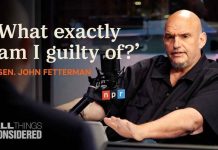
French officials have blocked Telegram founder Pavel Durov from visiting the United States amid serious legal troubles, raising concerns about government overreach and potential political manipulation of the popular messaging platform.
Key Takeaways
- French authorities denied Pavel Durov’s request to travel to the US for investment meetings, citing lack of urgency despite his willingness to address illegal content concerns on Telegram.
- Durov previously accused France’s intelligence agency (DGSE) of attempting to censor conservative Romanian accounts before elections, allegations the agency has denied.
- Romanian politician George Simion, who lost a recent election, has claimed foreign interference and is seeking Durov’s testimony to support his constitutional challenge.
- After his Paris arrest in 2024, Durov was briefly allowed to travel to Dubai but now faces increasing restrictions from French authorities.
- The situation highlights growing tensions between tech platforms and European governments over content moderation and free speech.
France Tightens Grip on Telegram Founder
French authorities have denied Telegram founder Pavel Durov permission to travel to the United States for important investment talks. Durov, who was previously detained in Paris and is currently under investigation for allegedly allowing illegal content on his messaging platform, sought permission to meet with senior tech figures in America. The Paris public prosecutor’s office and the National Jurisdiction Against Organized Crime (JUNALCO) determined that Durov’s travel request lacked sufficient urgency or justification to warrant approval.
Since his arrest earlier this year, Durov has reportedly taken steps to address concerns about illegal content on Telegram, which has over 900 million users worldwide. However, French authorities appear unmoved by these efforts, maintaining strict control over his movements. This marks a significant escalation from March when Durov was briefly permitted to travel to Dubai following his initial detention, suggesting France is tightening restrictions as the investigation progresses.
Political Accusations and Election Interference Claims
The situation has taken on additional political dimensions following Durov’s explosive accusations against France’s Directorate-General for External Security (DGSE). The Telegram founder claimed that French intelligence had directed actions against pro-conservative Romanian accounts ahead of elections, effectively attempting to silence political opposition. The DGSE promptly denied these serious allegations, but the damage to public perception was already done, raising questions about potential government overreach into digital platforms.
These accusations come at a particularly sensitive time as Romanian politician George Simion has contested his electoral defeat, claiming it resulted from foreign interference. Simion has appealed to Romania’s constitutional court and expressed interest in having Durov testify to support his claims. For his part, Durov has publicly stated his willingness to provide testimony “in support of Romanian democracy,” further inflaming tensions between the tech entrepreneur,” according to French authorities.
Broader Implications for Free Speech and Tech Regulation
The ongoing legal saga surrounding Durov highlights the increasing friction between tech platforms and European governments over content moderation and freedom of expression. Telegram has long positioned itself as a champion of privacy and free speech, features that have made it popular with users worldwide but have also drawn scrutiny from authorities concerned about illegal activities conducted through the platform. The French government’s handling of Durov’s case sends a clear message to tech leaders who resist compliance with European content regulations.
The restriction of Durov’s movements represents a concerning precedent for tech entrepreneurs operating globally. With French authorities effectively keeping the Telegram founder tethered to their jurisdiction during the investigation, questions arise about the appropriate balance between addressing legitimate concerns about illegal content and respecting due process. Durov’s lawyer has declined to comment on the situation, leaving many questions unanswered as the investigation continues.





